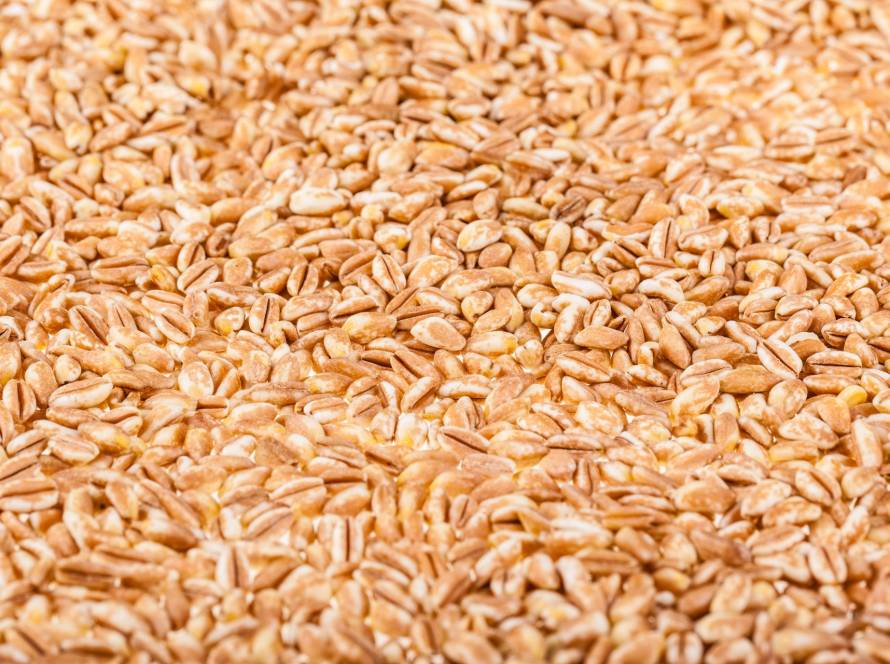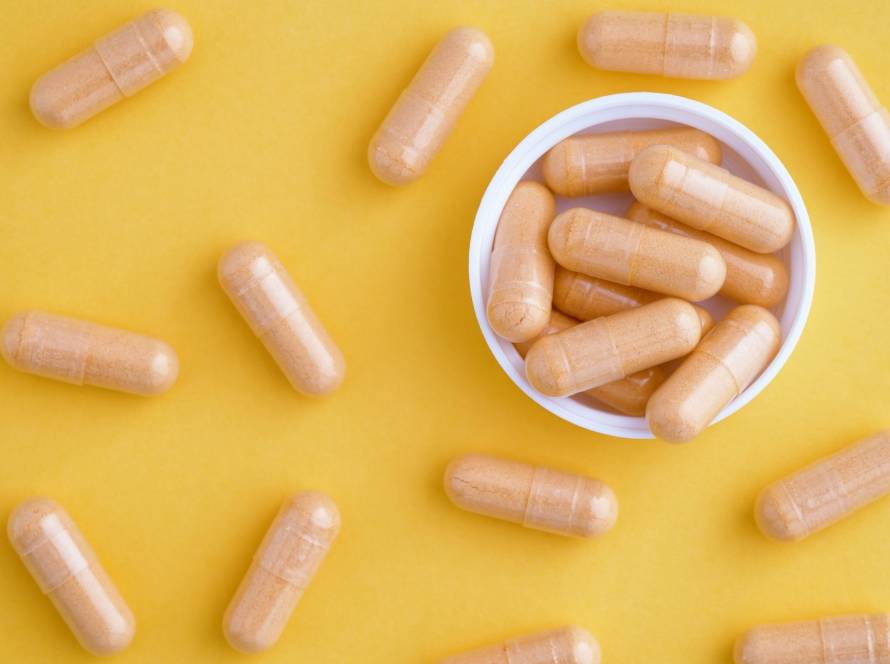Science has uncovered some fascinating findings about tea and its connection to a longer life. Daily tea drinkers have a 10-20% lower mortality risk than those who don’t drink tea.
This piece will help you understand how different anti-aging teas can extend your healthspan and lifespan. You’ll get into the specific compounds of the best teas for longevity and practical ways to add these benefits to our daily routine.
The science behind tea and longevity
Tea stands out as one of the best scientifically backed dietary habits to extend lifespan. The pleasant taste is just the beginning, teas effects on our bodies explain why it belongs in any longevity focused diet.
How tea affects biological aging markers
Scientists can now measure biological aging through specific markers and tea keeps showing positive effects on these measurements.
The largest longitudinal study from the China Multi-Ethnic Cohort (CMEC) showed people who started drinking tea experienced a decrease in the acceleration of biological aging by 0.319 years over the study period. The results were even better for people who kept taking them regularly.
We can see teas anti-aging benefits at the cellular level through telomeres, protective caps on our DNA that naturally get shorter as we age. Green tea drinkers showed substantially less telomere shortening, especially in adults under 65, according to recent studies measuring leukocyte telomere length (LTL).
Tea helps curb cellular senescence (the aging of cells) that leads to inflammation and tissue dysfunction. Tea polyphenols slow this aging process at its source by reducing oxidative stress.
Key compounds in tea that promote longevity
Teas remarkable anti-aging properties come from specific bioactive compounds:
- Catechins: these polyphenols work as powerful antioxidants, with green tea having the highest concentrations. They neutralize reactive oxygen species (ROS) that harm cells;
- Epigallocatechin-3-gallate (EGCG): green teas most abundant catechin, EGCG shows the strongest antioxidant activity among tea compounds. It boosts mitochondrial function and reduces DNA damage, which directly supports cellular longevity;
- Theaflavins: black tea contains these compounds that boost heart health and reduce cardiovascular risk. Their unique structure lets them neutralize free radicals effectively;
- L-theanine: this amino acid creates a mutually beneficial effect with caffeine to support cognitive function and brain health.
Recent research findings on tea consumption and lifespan
The link between tea and longer life grows stronger every day. A study of nearly one million Japanese people aged between 40 and 69 showed that people who drank two or more cups of green tea daily had a 9-13% lower risk of all cause mortality.
Tea really shines in reducing deaths from cardiovascular diseases, with lower rates of death from ischemic heart disease and stroke. One case control study revealed a 31% and 39% reduction in cardiovascular risk among moderate and heavy tea drinkers after adjusting for other factors.
Scientists have found that mixing tea drinking with physical activity creates an even stronger effect, reducing mortality risk more than either habit alone.
Tea traditions of the worlds longest lived populations
Tea serves as more than just a beverage in the world’s blue zones, regions with exceptional longevity. These communities have made tea the life blood of their daily rituals that lead to remarkable lifespans. People in all five blue zones take tea daily instead of sodas or sugary drinks.
Okinawans approach to tea drinking
Tea accompanies almost every meal in Okinawa and forms the foundation of their culinary culture. Okinawans prefer sanpin cha (jasmine tea) as their daily brew but also enjoy other varieties with powerful health benefits.
Tea in Okinawa provides essential antioxidants and creates chances to socialize with family and friends. Unlike Westerners who focus on health benefits, Okinawans blend tea into their meals and visitor customs. This makes health improvement natural through cultural habits.
Tea practices in the Chinese longevity villages
China rightfully claims its place as teas birthplace, with areas like Bama Yao county showing remarkable longevity rates. A analysis of the Chinese Longitudinal Healthy Longevity Survey revealed that regular tea drinking associates with a 10% mortality risk reduction among Chinas oldest population.
Chinese people don’t just drink tea, they celebrate it through ceremonies like Gongfu cha, which means “making tea with skill”. Chinese tea culture evolved through different phases and moved from compressed tea bricks to loose leaf preparation after the Ming dynasty’s 1391 decree.
The role of tea in Mediterranean blue zones
Residents of the Greek island Ikaria show almost no signs of dementia and herbal tea stands out as their defining practice. Ikarians make daily teas using herbs from their gardens and surrounding wilderness. They pick oregano, dandelion, sage and rosemary instead of store bought varieties.
Ikarian herbal blends work as both beverages and medicine. Lab tests showed these teas have powerful antioxidant properties and act like mild diuretics, similar to common blood pressure medications.
Sardinias residents, in another Mediterranean blue zone, prefer milk thistle tea. This tea contains silymarin, an antioxidant compound that scientists currently study.
Green tea: the anti aging powerhouse
Green tea stands out as the most studied anti-aging powerhouse among all drinks that promote longevity. This ancient beverage contains unique compounds that directly influence how cells age and repair themselves.
EGCG and its cellular repair mechanisms
Epigallocatechin gallate (EGCG), green teas most abundant catechin, powers its remarkable anti-aging effects. EGCG works through a fascinating mechanism called mitohormesis at the cellular level. Research shows EGCG temporarily inhibits mitochondrial complex I activity and creates a brief, controlled increase in reactive oxygen species (ROS). This gentle stress triggers powerful responses that help the body adapt.
The body responds to this original challenge by activating several longevity pathways. These adaptations improve:
- Cellular stress resistance;
- Antioxidant enzyme activity (SOD and catalase);
- Reduced fat content;
- Improved healthspan and lifespan.
EGCG also protects DNA from damage, reduces inflammation and shows strong anti-cancer properties. It also prevents telomeres from breaking down by blocking telomerase activity, a vital factor in cellular aging.
Matcha vs. regular green tea for longevity benefits
Matcha, a powdered form of green tea, takes these benefits to new heights. Regular green tea leaves get steeped and thrown away, but matcha involves eating the whole leaf, which significantly increases the intake of beneficial compounds.
Lab tests show matcha has up to 10 times more antioxidants than regular green tea. Two cups of high quality matcha provide the same antioxidant content as about 20 cups of regular green tea.
Optimal daily consumption for maximum benefits
Research points to a sweet spot in green tea consumption to get the most longevity benefits. People who drink 5 cups daily have a 76% lower risk of dying compared to non drinkers. Balance remains key though.
The right preparation matters. Green tea needs proper steeping to release its catechins fully. Very high consumption (more than 8 cups daily for long periods) might cause liver problems or affect how well certain medications work.
Black tea and its unique longevity benefits
Black tea stands out among drinks that promote longevity because of its unique fermentation process. The oxidation of black tea leaves creates special compounds with remarkable health benefits that complement other tea varieties.
Theaflavins and their affect on heart health
Theaflavins give black tea its characteristic dark color and are polyphenols that emerge during tea leaf oxidation. These compounds play a vital role in protecting cardiovascular health. Research shows they improve endothelial function in patients with coronary artery disease. Black tea consumption reverses endothelial vasomotor dysfunction both short and long term. This might explain why tea drinkers experience fewer cardiovascular events.
Lab studies show theaflavins have extraordinary electron donating capabilities. They efficiently eliminate harmful free radicals like singlet oxygen, superoxide anions and nitric oxide. These compounds might help lower LDL cholesterol by reducing intestinal absorption.
Black tea consumption also shows promising effects on blood pressure. One study found that theaflavins may help lower cholesterol levels by reducing how much cholesterol your digestive system absorbs.
How fermentation improves certain bioactive compounds
The oxidation process turns catechins into theaflavins and thearubigins. This creates black teas distinctive flavor profile and health benefits. Enzymes naturally present in tea leaves trigger chemical reactions when leaves meet oxygen. These reactions alter catechins molecular structure and produce compounds with improved bioactive properties.
Studies show fermentation improves teas functionality in several ways:
- Better antibacterial activity against pathogens like E. coli and Salmonella;
- Higher antioxidant capacity through structural changes to polyphenols;
- Better absorption of beneficial compounds due to molecular transformation from bound to free state.
Other teas with powerful anti-aging properties
Tea varieties beyond green and black offer remarkable anti-aging benefits through unique biological mechanisms.
White tea and DNA protection
White tea stands out as the least processed of all teas and preserves high antioxidant levels. These phytochemicals stay intact due to minimal processing and protect against oxidative stress. Lab studies show white tea powder helps curb inflammation of human skin cells caused by free radicals. Research indicates white tea extract can extend lifespan in model organisms by a lot.
White teas DNA protection capabilities make it unique. The skin gets protection against UV damage when white tea is applied. White tea extract can also counter aging caused by poor diet. It does this by activating oxidative phosphorylation pathways.
Oolong teas metabolic advantages
Oolong tea sits between green and black varieties in oxidation and comes with unique metabolic benefits. Research shows people who drink oolong tea can burn 2.9% more energy compared to water. This leads to burning 281 kJ extra each day, with 12% higher fat oxidation.
Studies reveal that oolong tea extracts help organisms live longer by improving their resistance to oxidative stress. Oolong teas unique polyphenols stimulate fat burning and increase calorie expenditure up to 3.4%.
Pu-erh and gut microbiome health
Pu-erh tea goes through a unique post fermentation process that creates complex components affecting gut health positively. Studies show this fermented tea helps good bacteria grow while stopping harmful ones.
Pu-erh tea extract helps reduce antibiotic induced intestinal inflammation and intestinal lesions. The fermentation process creates unique compounds that work with gut microbiomes to support overall wellness.
Herbal teas with proven longevity benefits
These herbal teas provide substantial anti-aging properties:
- Rooibos: this caffeine free tea contains aspalathin, a rare antioxidant that supports heart health and fights inflammation;
- Chamomile: a prominent calming tea that improves sleep quality;
- Peppermint: this tea helps digestion and reduces stomach discomfort.
Medical approval becomes important before consuming herbal teas regularly. Dieticians suggest drinking them in moderation, especially if you have certain health conditions.
Tea helps you live longer because it works in many ways. It protects your DNA, keeps your heart healthy, boosts metabolism and helps good bacteria grow in your gut. Each type of tea brings something special to the table. White tea packs antioxidants while fermented pu-erh has its own health perks. Try different types and make tea drinking the life blood of your plan to live longer.


